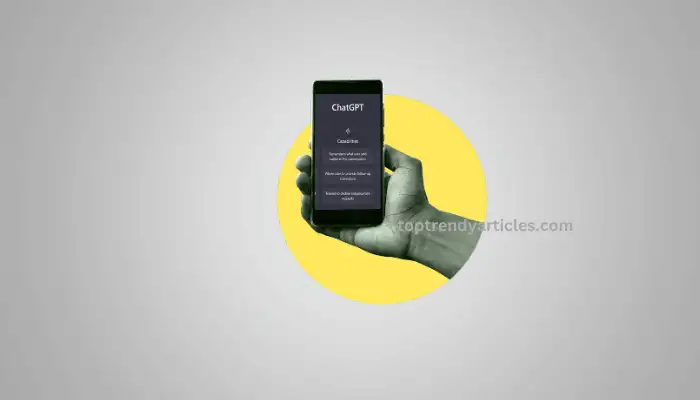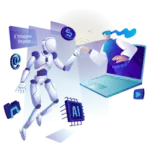OpenAI has sounded the alarm on people forming emotional connections to AI bots that could rival or even come at the expense of relationships with other human beings, amid an increasing incorporation of artificial intelligence (AI) into daily life. The company’s newest natural language generator, ChatGPT-4Q realistic voice features have prompted ethical conversations about how human-like an interaction with AI should be. But OpenAI has interest in the psychological and social affects that these kinds of interactions can have, especially with evoking AI output.
The Trouble with Anthropomorphizing AIs This is the core of OpenAI’s concern: anthropomorphization. One of the ways people are putting AI to use has hinted at more troubling directions holding unintended consequences for the company. For example, it has been documented that some of the ChatGPT-4o beta testers have felt sad about ending their final conversation with the bot and likely developed personal attachment similar in ways to how we connect emotionally typically reserved for humans.

OpenAI noted this is particularly problematic since the advanced audio capabilities of ChatGPT-4o reportedly make it good at providing more convincing-sounding replies. This realistic voice of the AI might allow for deeper connections and more misplaced trust by users. While these interactions may seem innocuous, the company points out that they should be examined further to see what effects it could have on human behavior and social norms in both short-term, as well long term.
Social Norms and Human Relationships OpenAI, in fact, seems specifically worried that extensive AI interaction might thwart a basic human inclination or ability to establish relationships with other humans. The possible over-reliance on the technology could be fueled by how simple it is to interact with AI thanks to its tendency to remember and tailor each specific need or want. This may lead the users to prefer AI interact more over human connections, therefore possibly damaging social relationships.
OpenAI noted that characteristics like the meekness of AI (e.g., allowing users to interrupt conversation) might begin to change social expectations. Obviously, an AI can get a “free ride.” That is basically expected behavior for an AI, but this type of activity is deemed anti-normative in human interactions because free-riders are sucking from the gift culture and giving nothing back or taking advantage without true consent. Over the long run, these kinds of feedbacks might gradually change how people interact with one another, altering social dynamics in ways that are not yet well understood.
Discussion: Ethical implications and considerations Recently, there has been an even larger conversation brewing around the ethics of AI in human-robot relations thanks to fears over growing emotional attachment. Alon Yamin, Co-Founder & CEO of Copyleaks, the AI-powered anti-plagiarism detection platform, adds this reminder: “AI is never a substitute for real human connection.” Yamin’s sentiment was echoed by OpenAI, which warned that this is a moment for careful thought on the potential effects of such technology on human relations and social behaviors.
OpenAI also warned that the technology could be weaponized to spread fake news or conspiracies by those who interface with AI systems and put emotional investment in them. In testing, it was discovered that the voice feature of ChatGPT-4o could be manipulated to repeat false information with remarkably good imitation, ultimately leading to a discussion on whether AI developers are obligated or not so much so — when creating these systems— create constraints in place that would make using them as speaker amplifiers difficult.
Where To Go From Here And AI Development Responsibility OpenAI has stated they will be researching the emotional impact of their voice capabilities, as a response to these concerns. These interactions could potentially develop into unhealthy attachments, a risk the company is trying to understand and contain. OpenAI, OpenAI is determined to prevent any undermining of human relationships by being a positive force through which the world makes use and benefit from Artificial Intelligence as part of its life.
OpenAI continues to find ways not only to mitigate the risks of emotional attachment but also for its further development. ChatGPT — AI Writing Partner The company has been steadily advancing how we use AI creatively, most recently releasing a new feature that gives users of ChatGPT Free the ability to generate imagery with an advanced model such as DALL-E 3. Nonetheless, as AI technology progresses, it often becomes more important to consider the effect of a new implementation on human-human interaction.
Wrapping it all up: The human-AI relationship OpenAI, which fears that affection might develop between human beings and robotic algorithms if we are not careful how the technology is created. AI will need to strike a balance between the drive for innovation and teething out ethical consequences so as not dry up technology investments but rather augment our societal experience.
Although AI has extraordinary potential to enhance nearly every aspect of life, from efficiency to creativity, its impact on human relationships must not be overlooked. Addressing these concerns in advance can help developers and users collectively construct a sustainable AI environment where human experience integrity continues to reign supreme.



